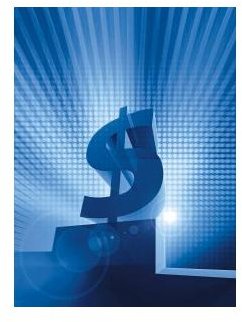Important Economic Terms & Definitions for High School Students
But Our School Doesn’t Teach Economics!
It doesn’t matter whether your school has an economics class or not, you’ll want to familiarize yourself with some key definitions. Knowing these definitions will help you out in course discussions, writing papers, and reading assigned texts. You may encounter economics terms when reading in social studies or world history, English classes and, depending what level math you are in, you may even encounter economic terms in your math classes. Be sure that you are familiar with these terms and their meanings. Doing so will help you to increase your understanding within your coursework.
As a bonus, at the end of the list of economic definitions, you will find some bonus resources for expanding both your knowledge of economics and your vocabulary!
Economics 101: The Bare Bones You Need
In order to even discuss economics, you will need to know what the following terms mean:
Economics - Economics is the scientific study of the means of producing and distributing goods and services so that they may be consumed by others.
Production - Production is the creation of a good or service that has value to another individual.
Distribution - Distribution is the method of getting the goods to the individuals who will use them.
Consumption - The actual use of the goods that are produced is what is known as consumption. Often times, consumption produces some form of waste.
Goods - Goods are the products that are desired by individuals.
Services - Services are processes that are desired by individuals.
Consumer - The consumer is the individual who will use the goods or services.
Producer - The producer is the individual who will create the goods or services.
Household - The household is the independent unit of customers.
Government - A government is a formal body which is in charge of creating and enforcing laws within a state.
Developed - Developed nations are those which meet certain criteria of economic measurement including gross domestic product (GDP) per capita, industrialization, etc.
Underdeveloped - An underdeveloped nation is one which has not yet organized, nor begun to organize in terms of job growth, industrialization, health care, etc.
Developing Economy - A developing economy is one in which there may be hunger issues (but not what you would find in an underdeveloped economy), and where you may find a wide variety of progress being made on the development spectrum.
Economic Systems Definitions
In addition to understanding the basic terms associated with economics, you’ll also need to familiarize yourself with different economic systems. An economic system is the way that production within a society occurs. It involves how goods or services are produced, distributed, and managed within the society. Here are the economic systems you should be familiar with. Note: Sometimes people conflate (confuse) some of these economic system terms with political system terms.
Capitalism - Capitalism is the economic system many are already familiar with. The purpose of capitalism is to ensure that production occurs that maximizes profit and is characterized by competition against other producers within the system. The means of production are privately held.
Socialism - Socialism is an economic system in which the means of production are held in common amongst members. There are many different types of socialism, and some types of socialism (communism, for example) are also political theories.
Market Economy - A market economy is an economy in which there is a strong division of labor (someone owns the restaurant, someone manages the restaurant, yet other people carry out the tasks of cooking and waiting tables); supply and demand is what allows individuals to set prices.
Supply and Demand - Associated with market economies and setting price points, supply is the number of goods or services produced and demand is the number of consumers wanting the goods or services. The higher the demand and the lower the supply, the more expensive an item will be whereas the higher the supply and the lower the demand, the lower the price.
Traditional Economy - A traditional economy is based on agriculture. “Traditional” economies are based upon family customs and do not rely upon market strategies.
Mixed Economy - A mixed economy is one which combines elements of both capitalist societies and socialist societies. Mixed economies feature some elements of the ideals of capitalism and private ownership of the means of production along with elements of the ideals of socialism with the public (governmental) ownership of the means of production.
Planned Economy - A planned economy is an economy in which the state directs the economy. This means that the state will determine how goods will be produced and to whom the goods will be distributed.
Gift Economy - A gift economy is one in which goods and services are freely given to others without any expectations for returns of the favor.
Barter Economy - A barter economy is one in which goods and services are traded for other goods and services without an intermediary form of payment (like money).
Additional Resources
Additionally, you’ll want to increase your vocabulary by reading terms in context. The New York Times and The Wall Street Journal are two newspapers worth reading on a regular basis when you are studying economics. Also, the magazine The Economist is a wonderful resource for what goes on around the world in terms of economics. Finally, consider investing in an economics dictionary like The Dictionary of Economics and an introductory economics text like Henry Hazlett’s Economics in One Lesson.
References
- Image courtesy of sxc.hu/gallery/yirsh
